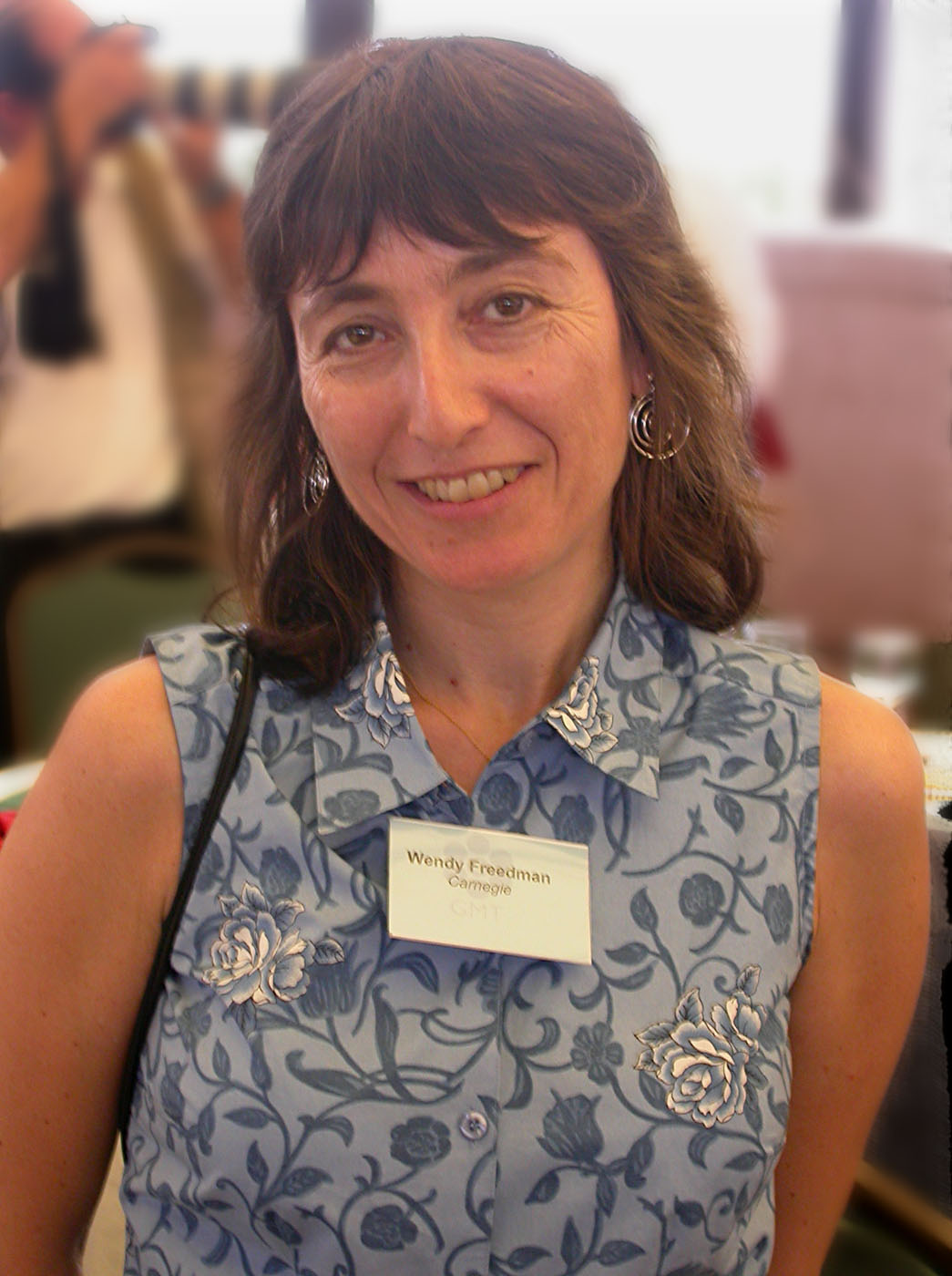Born in 1957 in Toronto, Ontario, Canada, Wendy
Freedman earned her B.S. (1979), M.S. (1980),
and Ph.D. (1984) in astronomy and astrophysics from the
University of Toronto. She joined the
Carnegie Observatories
in Pasadena, California as a
post-doctoral fellow in 1984 and became a
faculty member of the scientific staff there three years later --
the first woman to join Carnegie's
permanent staff. In 2003 she was named the Crawford H. Greenewalt
Chair and Director of
Carnegie Observatories.
Currently,
she is also Chair of the GMT Board.
Wendy is also a
member of the Astronomy and Astrophysics Decadal Survey Committee
of the National
Academy of Sciences and the National Research Council's Committee
on Astronomy
and Astrophysics.
Wendy Freedman received the 1994 Marc Aaronson Lectureship and prize
"in recognition
of a decade
of fundamental contributions to the areas of the extra galactic
distance scale and
the stellar
populations of galaxies".
She was awarded a Centennial Lectureship of the
American Physical Society in 1999 and a Cosmos Club Award in 2000,
when she also was
elected a Fellow of the American Academy of Arts and Sciences. In
2002 she received the
American Philosophical Society's Magellanic Premium Award for her
leadership in
bringing observational cosmology into the 21st century. In 2003
she was elected to the
National Academy of Sciences.
Her research interests
include observational
cosmology, evolution of galaxies and their stellar
populations,
and the extragalactic distance scale.
For almost a decade she has been involved
in determining the rate
at which the universe is
expanding, using the Hubble Space Telescope
(HST). This expansion
rate, known as the Hubble
constant, has been an important
cosmological problem for the past
70 years. Freedman is one
of three principal
investigators on the project. In 2000 the group
concluded that the universe is
expanding at
a rate of 74 kilometers/second/megaparsec (one
parcsec is 3.26 light-years) with a
total
uncertainty of 10%. In other research, Freedman, with
Rebecca Bernstein and Barry Madore,
have made the most accurate optical measurements of the total
integrated light from all
galaxies
and objects in the universe.
